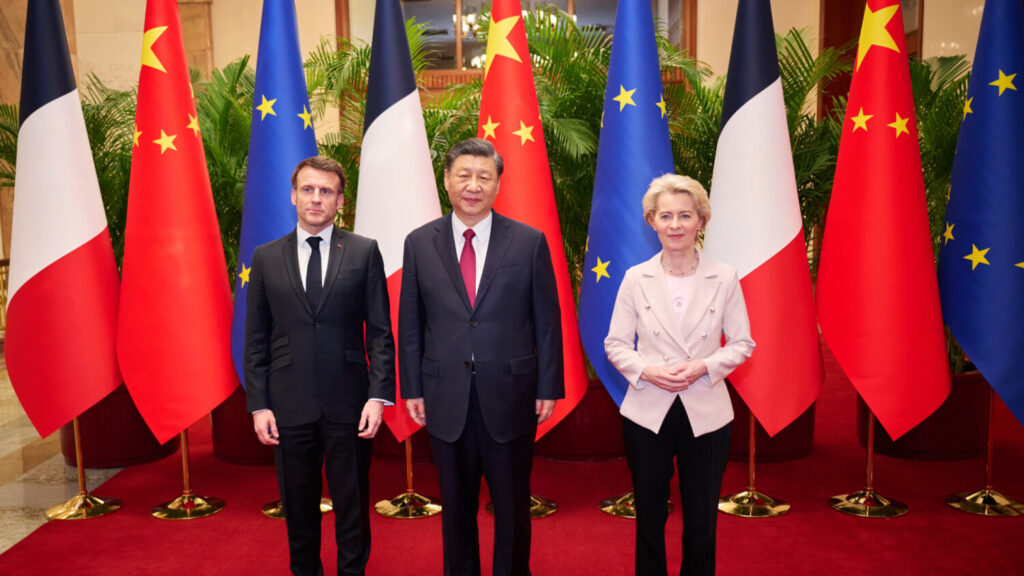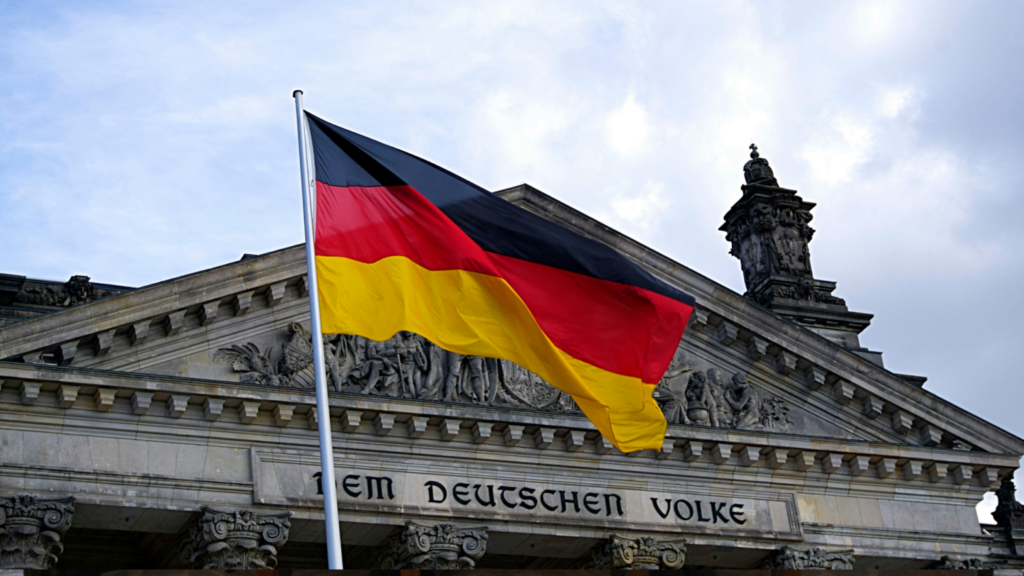The US and Poland Defense Cooperation: Is It a Threat to Unity of the European Union?
Introduction
The emerging new world order and its distinctive features are debatable issues among scholars. The inherent nature of this modern international system with its multipolarity differs from the bipolar Cold War era . The new regional powers have begun to play a decisive role in regional affairs, impacting on other regions with international and global consequences. In the European region, Poland can be classified and included in this list, having one of the developed economies, with a big army, and political influence in Central and Eastern Europe. Its ambitious being a key and independent player from Brussels and Berlin in Europe was demonstrated clearly after signing defense agreement with the U.S.
Here the question raises whetherthe U.S. and Poland cooperation and individual act of the Polish government in international relations could jeopardize the European unity and integration process. Or, is there an alternative course of events like economically and politically strong Poland with close collaboration with the United States to foster the European Union’s status in international affairs?
The main goals of the U.S. troop’s deployment
If one reviews the history of the U.S. and Poland relations, he can realize that the United States played a significant role in Poland’s formation of statehood and becoming a pivotal player in regional affairs. While US efforts to support Poland’s NATO membership process yielded the expected results in 1999, Poland became a member of the European Union in 2004. In response, Poland supported the United States and actively participated in military operations in Iraq and Afghanistan, significantly contributing to NATO. Poland possesses the ninth-largest army in NATO, with 48,200 active personnel, and there are approximately 99,300 total active military personnel across all branches (Mix, 2016, p. 7) and of the few members that meet NATO foundation requirements.
The recently signed defense cooperation agreement is a logical continuation and further strengthening of the US-Poland relationship. Such a political movement can be explained in the following points.
Firstly, according to George Friedman, in the middle of the century, other powers will emerge, and countries, which have not been great powers, will be powerful and important players in international affairs (Friedman, 2009, p. 10). And one of them is Poland. He pointed out that the U.S. will provide massive economic and technical support. Poland will lead the coalition during the war against Russia in the future (Ibid, p. 10). Geographically, its land is mainly composed of plains, situated on the North-Central European Plain, which allows military troops to move freely in all directions. The geopolitical location of Poland was a strategic important territory during World War II. Today Poland, having common borders with Germany, Belarus, and Ukraine, will be the U.S. bargaining chip in European issues and against Russia. A politically and economically strong Poland will counterbalance Germany’s political superiority in the Union and become a point of spreading American influence in Western Europe and the Balkan region. Simultaneously, it will influence Belarus and Ukrainian behavior on relations with Russia.
Secondly, Ukraine’s military conflict and the accession of the Crimea to the Russian Federation raised the issue of preventing further Russian movements to Europe. The outbreak of the Ukrainian conflict in 2014 led Poland to come up with a proposal for deployment of the US troops on its territory on a permanent basis. This will be explained by the memory of the Polish people about the entry of Russian troops during the Second World War. Undoubtedly, the repetition of such Russian military disembarkation seemed more realistic after Ukraine and Crimea cases. And for Poland, the presence of American soldiers would guarantee its territorial integrity. However, for the U.S. as President Trump pointed out it will increase NATO deterrence, bolster European security, and help ensure democracy, freedom, and sovereignty. Poland can be a shield from the Russian threat to European security and U.S. interests in the region.
Another important goal of deploying US troops in Poland is the implementation of the Three Seas Initiative. This initiative unites twelve Central and Eastern European countries and aimed at strengthening connectivity in this geographic area, Europe and transatlantic direction by the development of the infrastructure for energy and transport (Thomann, 2019, p. 32). The principal goal is to reduce European dependency on Russian energy. Today Russia has a great influence on this region, especially on Balkans, who is the main consumer of Russian energy. Hence, all of this serves the interests of the United States and Poland as well.
Is the U.S. and Poland cooperation a threat to the EU unity?
Efforts by France and Germany to foster unity among member states and strengthen the European Union’s role in international affairs have faltered since the signing of the Enhanced Defense Cooperation Agreement (EDCA) between the United States and Poland on August 15. For instance, Poland and Germany were close partners in Europe until the crisis occurred in their relations in 2015. Prior to coming to power the right-wing populist Law and Justice Party in 2015, Polish leaders viewed Germany as a key partner in Europe (Buras & Janning, 2018, p. 4). But a new government named the UK to this position. The PiS government called into question the leading role and key political power of Germany in the EU, trying more sovereignty from Brussels and Berlin in its external relations.
While German efforts directed to foster unity of the Union, Poland focused on bilateral relations with the U.S., and this divergence of political views led to a difference in understanding of Trump’s policy towards Europe (Ibid). Besides that, 2006 Russian-German cooperation to build the Nord Stream gas pipeline through the Baltic Sea, bypassing the Baltic States and Poland was another reason for the deterioration of relations (Mix, 2016, p. 13).
Thus, this scenario could be a serious stumbling block in relations between Germany and Poland. The tension between the main economic and political engine of the EU and the fifth economy and key country of Central and Eastern Europe could weaken European unity because these two states are linking bridge between Western and Eastern Europe.
Furthermore, Poland sees the European security and defense policy in the framework of NATO and close collaboration with the U.S. However, the EU determined that European security and defense capability should provide act autonomously (Strategy, 2016, p. 20). Poland has been the main critic of Common Security and Defence Policy (CSDP), arguing that it could undermine the transatlantic partnership by needlessly duplicating NATO (Buras & Janning, 2018, p. 14). Instead of building a united defense policy in the framework of the EU and NATO, Poland acted individually by fostering its strategic partnership with the U.S. Consequently, French President Macron’s initiative to build a common European force and implement European Defense Fund and Permanent Structured cooperation seemed challenging because of such differences of opinion among member states.
Obviously, the American troops on a permanent basis in the territory of Poland, which has a common border with Ukraine, Belarus, and Kaliningrad, will provide security in the eastern frontiers of Europe, and check further spreading of Russian influence and threat toward West. However, independent political action of member states in such issues could be detrimental to European unity and undermine further political and economic integration.
What are the criteria for strong and deep integration of the EU and united Europe?
If the European Union does not want the repetition of Brexit, failure of the integration process, or dysfunction of its institutions it should take into consideration past mistakes and act constructively to build an equitable, vertically and horizontally integrated political arena. First of all, for that, the EU should meet the interests and take the views of all member-states. The day when the union stops to be tailored to the needs of members, they begin to leave such union as it happened with the UK. Any union will exist as long as it meets the interests of the participants.
The international arena is competitive and its units are competitors for power, influence, and leadership at least in their region even sharing common interests, cultures, and history. Withdrawal of American troops from Germany and deployment in Italy, Belgium, and Poland will change the power balance in Europe, increasing the competition among Union members, which could be a source of tensions. In this situation, good governance of the supranational institutions of the EU, its ability to provide equal rights for members, constructive dialogue among them can be logical frameworks for settling the differences.
Political and economic integration implies sharing authority of nation-states with supranational institutions, providing opportunities, deepening economic and political relations among nations, reducing the risk of conflict, and preventing collision of interests by making them look for common solutions for common issues. As a supranational organization, the EU replaces nation-states’ function. Besides that, this process requests unrelenting demand; for example, with the limitation of their sovereignty in some issues, sometimes the national governments have to put Union’s issues over the state interests. It is also related to building relations with non-member-states if this cooperation will impact on regions affairs and the Union. Thus, Poland wants independent policymaking with its strategic partner. Finding consensus and golden mean among member-states and the Union’s interests, states’ respective attitude to common European policy can be logical frameworks for settling the differences.
Cooperation with third parties, in Union or state level, should not cause tension among member-states. Any individual agreement of members with third parties should be based on common European values and interests, while supranational institution’s governance should take into account the interests of members.
Conclusion
The European Union relies on political and economic interests, common values, and shared history. And its further deepening of integration depends on member states’ will and the EU institutions’ capabilities of good governance in the global world.
The recent defense agreement of the U.S. and Poland has challenged the European values of unity, crippling integration process, and common defense policy. The blind side of this is worsening relations of close partners: Germany and Poland, creating a competitive environment between them. To solve this problem the EU should analyze and constructively criticize past failures, and obtain new experience based on her almost 70 years of existence.
References:
Buras, P., & Janning, J. (2018). DIVIDED AT THE CENTRE : GERMANY , POLAND , AND THE TROUBLES OF THE TRUMP ERA. December.
Friedman, G. (2009). The next 100 years – A forecast for the 21st century (Doubleday). v.
Mix, D. E. (2016). Poland and its relations with the United States: In brief. Spain: Conditions, Issues, and U.S. Relations, 1–15.
Strategy, E. U. G. (2016). Shared Vision , Common Action : A Stronger Europe Shared Vision , Common Action : A Stronger Europe. European Union Global Strategy, 60.
Thomann, P.-E. (2019). The Three Seas Initiative, a new project at the heart of European and global geopolitical rivalries. Rocznik Instytutu Europy Środkowo-Wschodniej, 17(3), 31–63. https://doi.org/10.36874/riesw.2019.3.3


